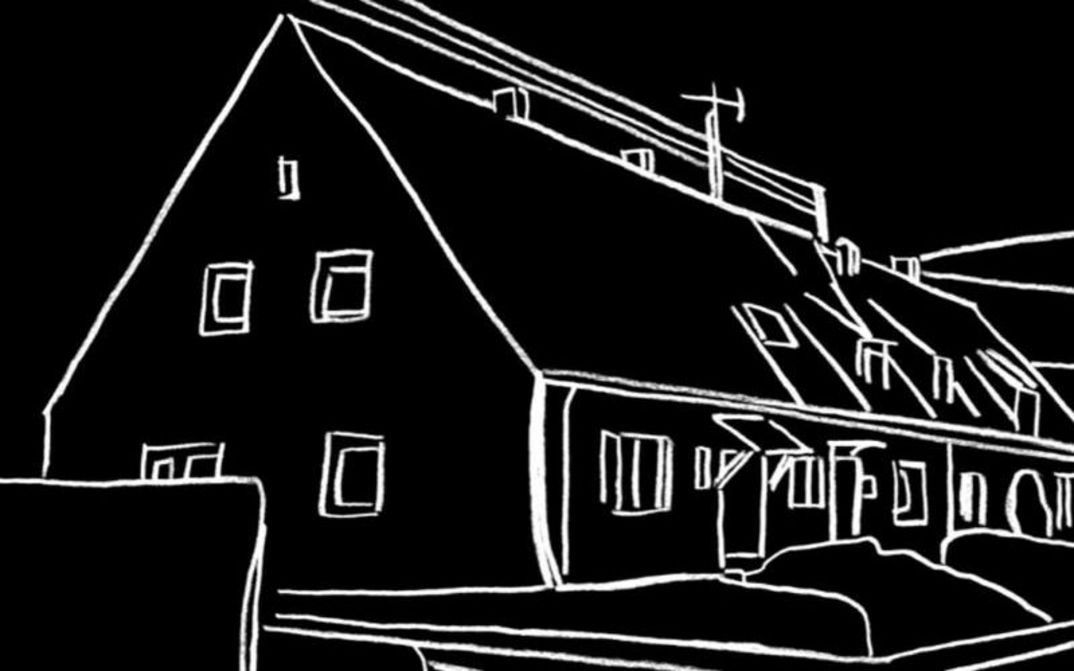"Displacement": Föhrenwald

Thu 19.01.
19:00
Director
Michaela Melián
Germany / 2005
50 min.
Program
Displacement
Cinema
Arsenal 1
zu den Ticketszu dem KalenderIntroduction by the curators and reading; Conversation „Displaced Persons Camps“: Michaela Melián and Marcus Velke (Historian)
The first chapter of Jonas Mekas' New York Diaries begins with the question, "Was I born a Displaced Person?" In his diary I Had Nowhere to Go, which describes the period from 1944 to 1955, he had not yet felt the blow of displacement as something that affected him as permanent, as it were innate. After the end of the Second World War, the involuntary years of wandering through displaced person camps in Germany began - a fate Jonas Mekas shared with his brother Adolfas. The return to their Lithuanian homeland was impossible for both of them due to the renewed Soviet occupation.
After the war, there were 239 DP camps in the Western occupation zone, reserved for survivors from concentration camps or forced laborers who could not return to their homeland. In Germany alone, there were over 7 million who had to be housed in DP camps temporarily or for years. They were under the authority of the United Nations Relief and Rehabilitation Agency (UNRRA). German refugees from the eastern territories, on the other hand, were not accommodated in DP camps. Surprisingly, very little is known in Germany today about day-to-day life in these camps. Jonas Mekas has recorded detailed observations in I Had Nowhere to Go. In his film REMINISZENZEN AUS DEUTSCHLAND (2012), Jonas Mekas returned to places like the forced labor camp in Elmshorn and recalls his odyssey through postwar Germany. The Lithuanian documentary KALBĖTI Į PAČIĄ ŠIRDĮ (1971) by Bytautė Pajėdienė accompanies Mekas on his first painful reunion with his homeland.
In 2005, artist Michaela Melián explored Föhrenwald, the largest Jewish displaced person camp near Munich. Her eponymous radio play, in which the voices of the displaced persons are interwoven, will be accompanied by a slide projection that makes the present-day settlement visible in drawings of white lines on a black background.
In conversation with historian Marcus Velke, Michaela Melián will discuss the different living conditions and forms of organization in DP camps in the Western occupation zone.
Program:
Introduction: Christoph Gnädig, Christian Hiller, Anne König
Kalbėti į pačią širdį to Speak to the very heart Bytautė Pajėdienė Lithuania 1971Digital file OV/EnS 11 min.
Reminiszenzen aus Deutschland Jonas Mekas USA 2012 Digital file OF 25 min.
Reading: Heike Geißler and Goda Palekaitė, from the diaries of Jonas Mekas
Displaced Persons United States Army Signal Corps USA 1945 Digital file silent 8 min.
(Accessed at United States Holocaust Memorial Museum, courtesy of National Archives & Records Administration)
Audio play with projections: Föhrenwald Michaela Melián Germany 2005 50 min. (in English language)
Conversation „Displaced Persons Camps“: Michaela Melián and Marcus Velke (Historian)